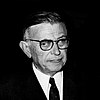


Reddit meter
The Wretched of the Earth
320 pages, 2005
A distinguished psychiatrist from Martinique who took part in the Algerian Nationalist Movement, Frantz Fanon was one of the most important theorists of revolutionary struggle and colonialism.
His book The Wretched of the Earth is a classic alongside Edward Said's Orientalism or The Autobiography of Malcolm X. It is now available in a new translation that updates its language for a new generation of readers.
In The Wretched of the Earth, Frantz Fanon explores the deep and lasting impact of colonialism on the colonized people. He shows how it's not just a political and economic issue, but also a psychological one. It's a fascinating look into how colonialism can shape a person's identity and self-worth.
Fanon digs into the role of violence in the struggle for decolonization. He doesn't glorify it, but he does argue that it can be a necessary tool for the oppressed to reclaim their freedom and dignity. It's a controversial idea, but one that's worth considering.
The Wretched of the Earth also explores the role of the intellectual in the fight against colonialism. Fanon argues that intellectuals have a responsibility to use their knowledge and skills to help their people. It's a powerful call to action for anyone with the ability to make a difference.
Fanon warns about the dangers of national consciousness, or the idea that a shared national identity can unite people. He argues that this can lead to new forms of oppression and inequality. It's a reminder to always question and challenge the status quo.
In the end, Fanon calls for a new kind of humanism, one that is rooted in respect for all people, regardless of race or nationality. He believes that this is the only way to truly overcome the legacy of colonialism. It's a powerful message that still resonates today.
Quotes 5
Fanon's book is a testament to the enduring spirit of the oppressed, a beacon of hope for those who dare to resist.
 Jean-Paul Sartre - Existentialist philosopher
Jean-Paul Sartre - Existentialist philosopherFanon's work is a profound exploration of the psychological impact of colonialism, a must-read for anyone seeking to understand the complexities of decolonization.
 Homi K. Bhabha - Postcolonial theorist
Homi K. Bhabha - Postcolonial theoristFanon's book is a powerful call to arms, a rallying cry for the oppressed to rise up and reclaim their dignity.
 Angela Davis - Political activist
Angela Davis - Political activistFanon's work is a seminal text in postcolonial studies, a groundbreaking exploration of the psychological trauma inflicted by colonialism.
 Edward Said - Literary theorist
Edward Said - Literary theoristFanon's book is a searing indictment of colonialism, a powerful exploration of its dehumanizing effects.
 Stuart Hall - Cultural theorist
Stuart Hall - Cultural theorist









